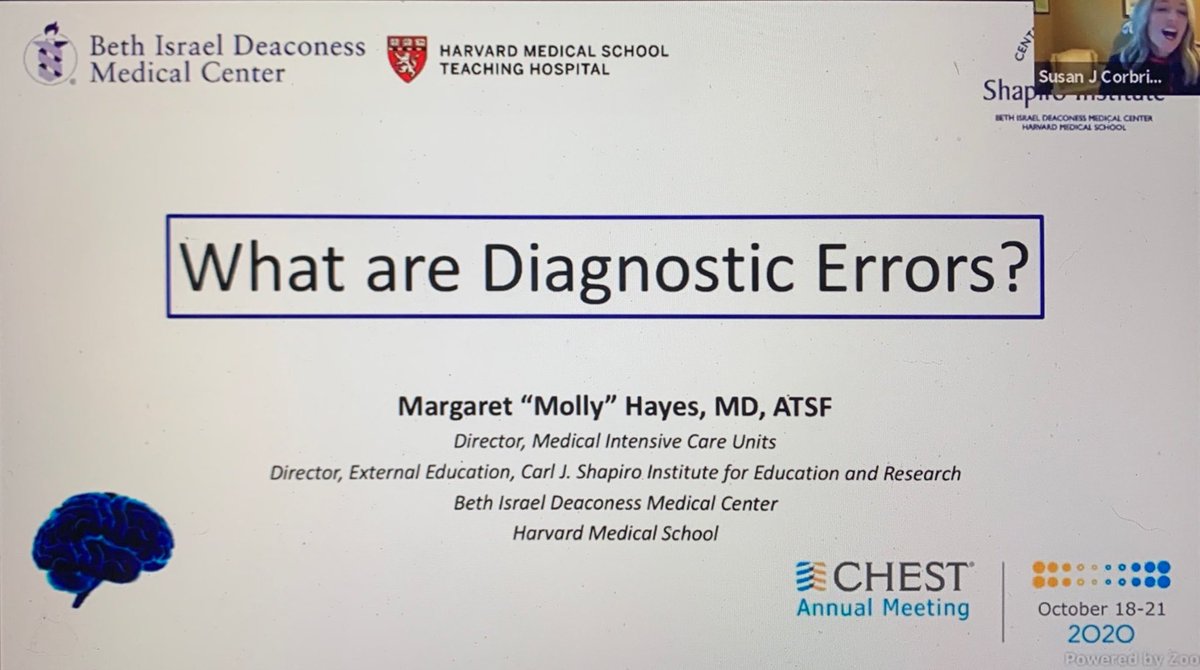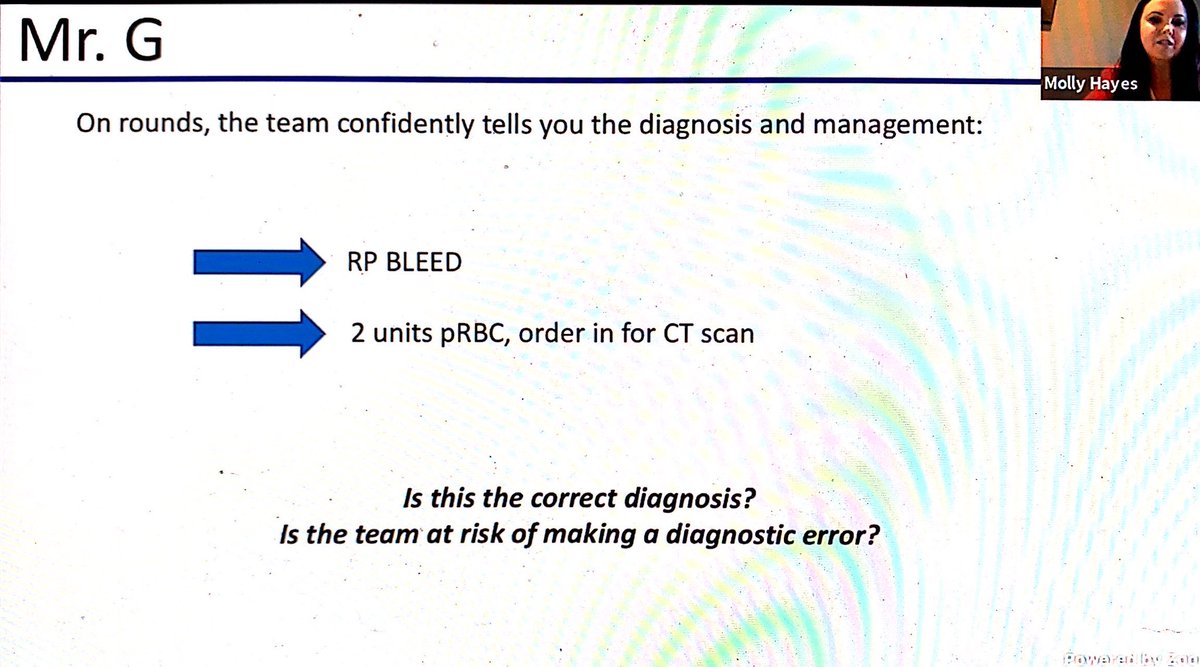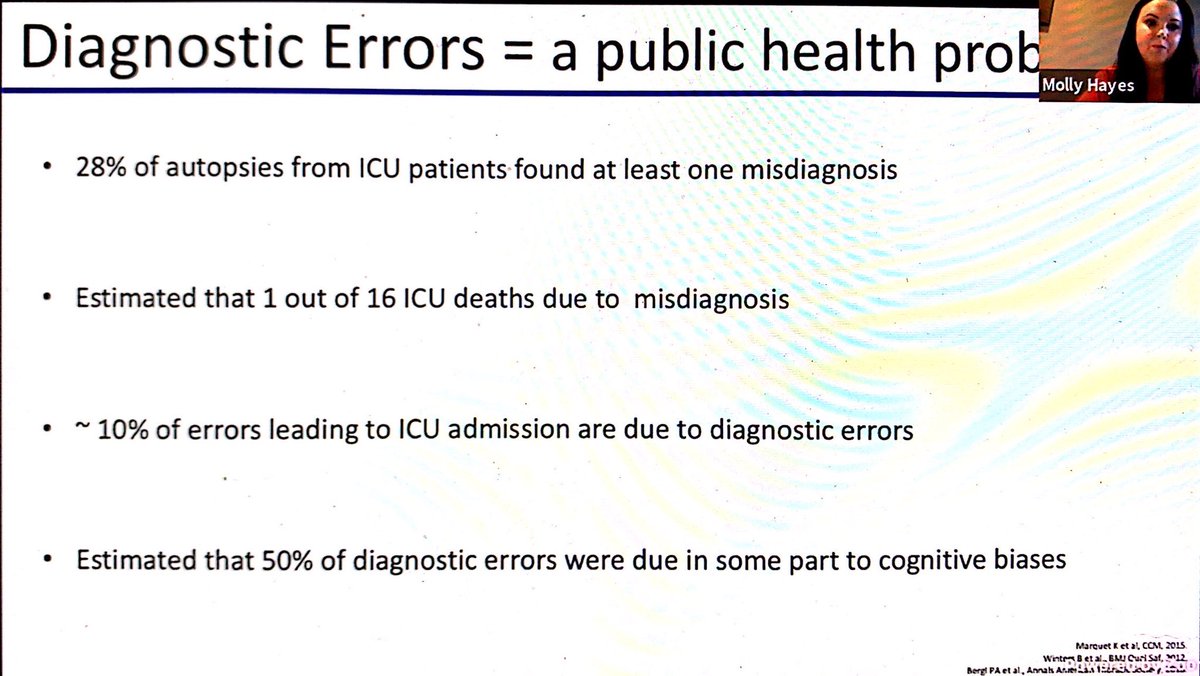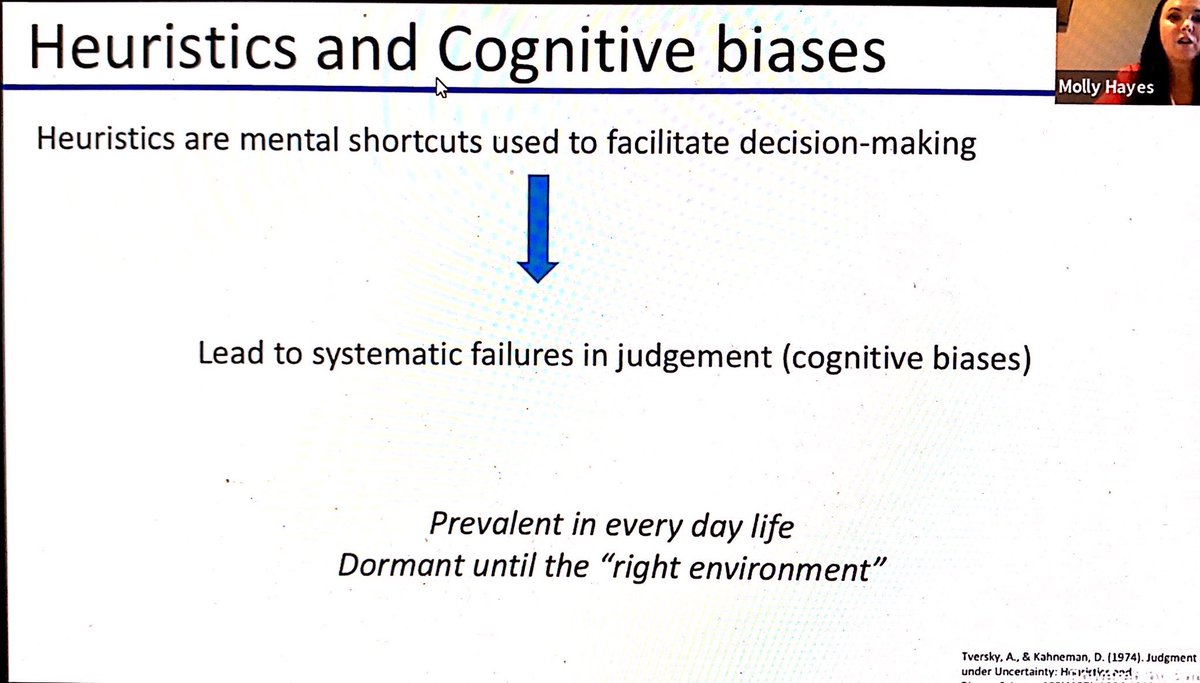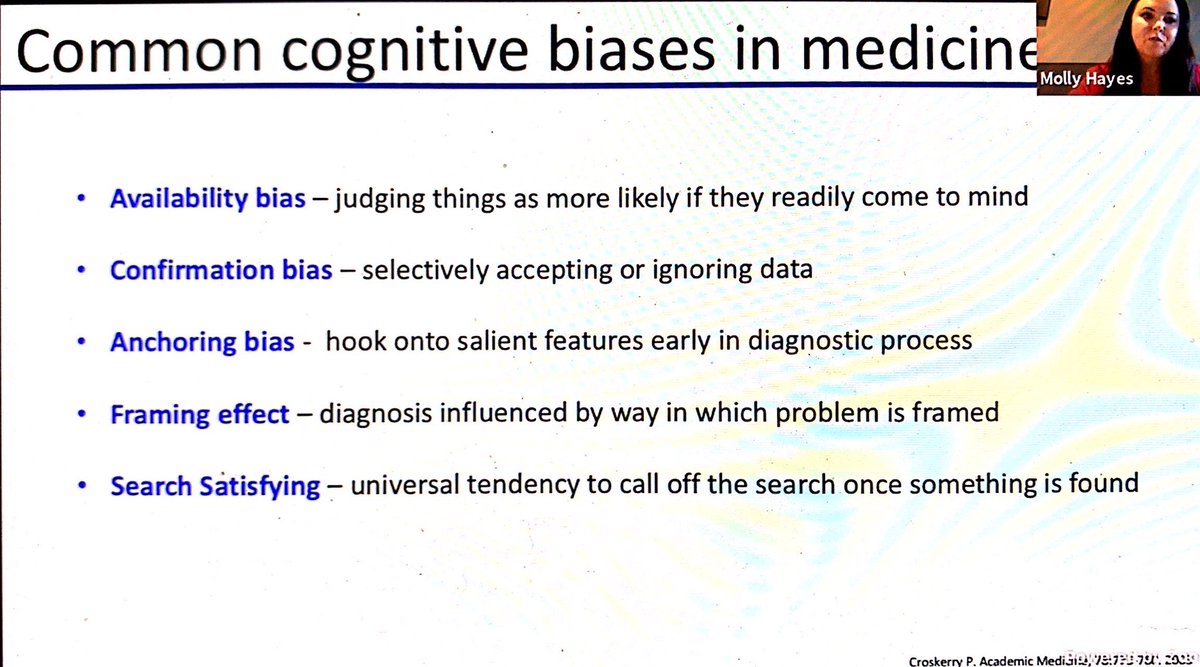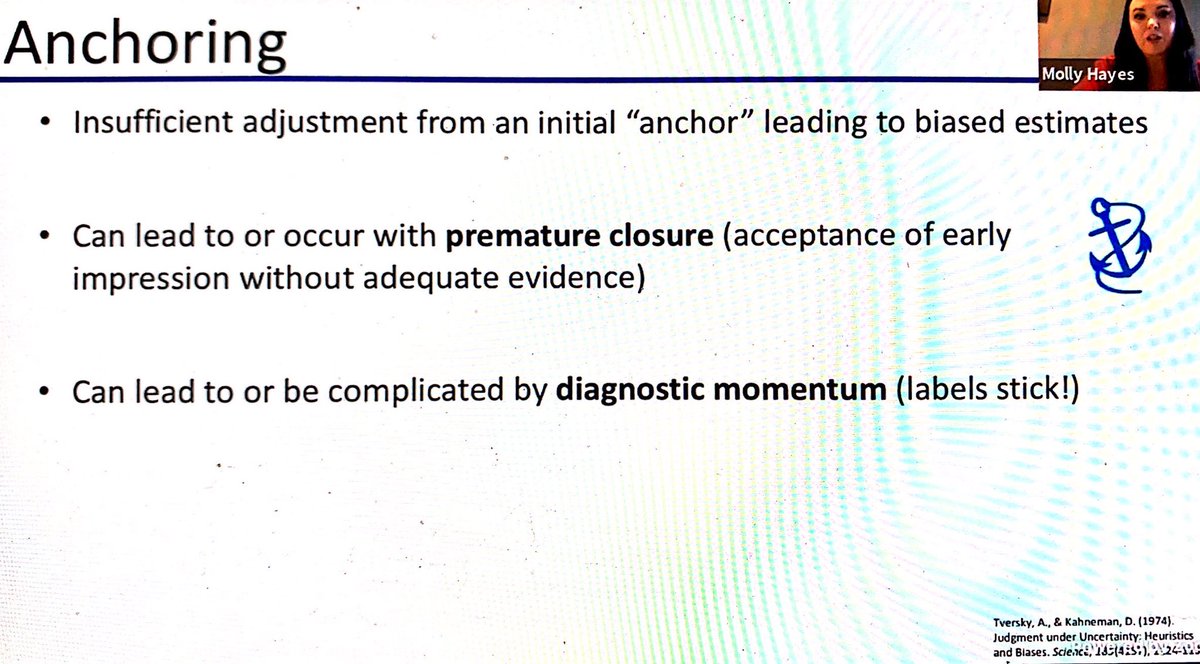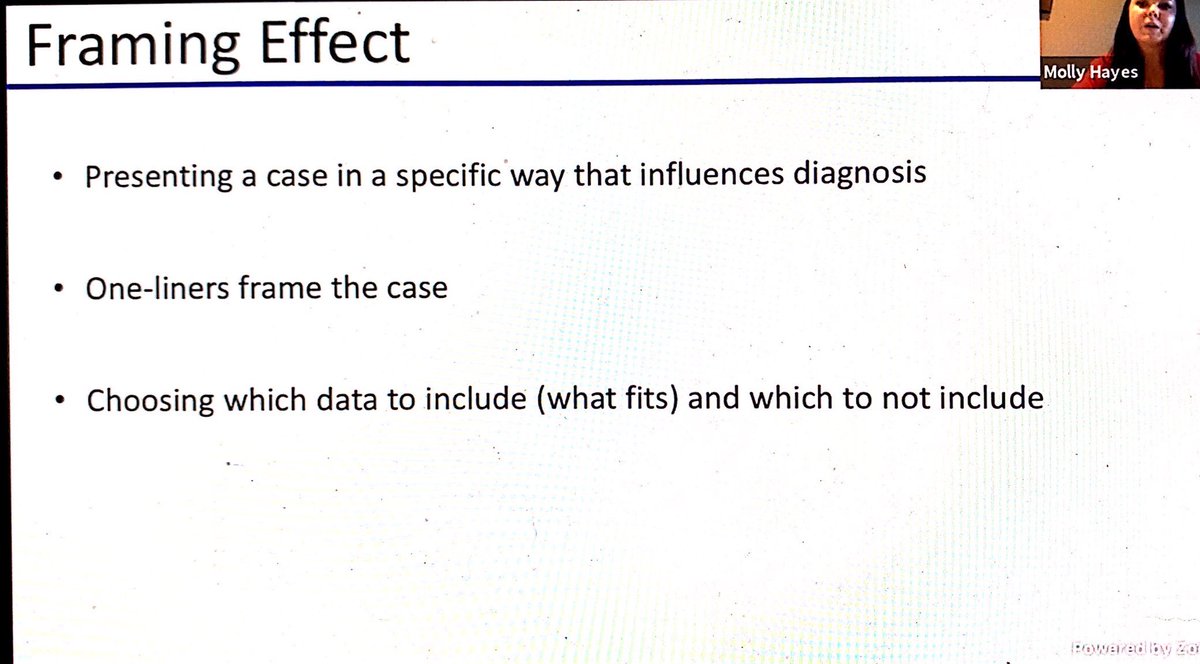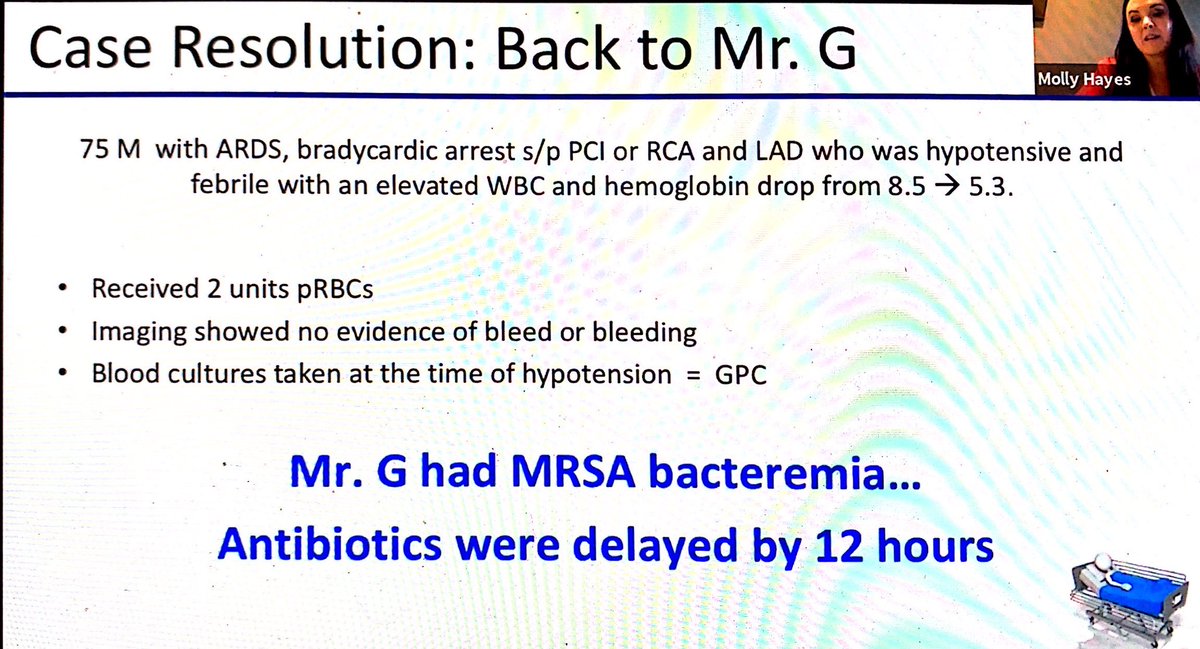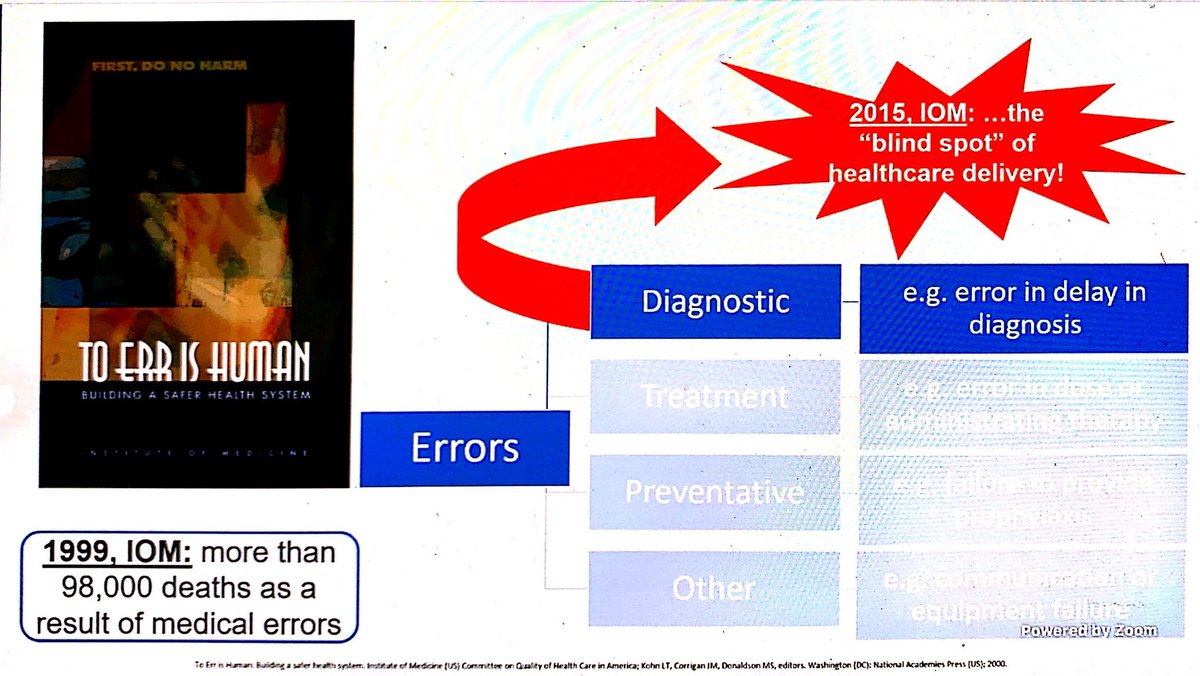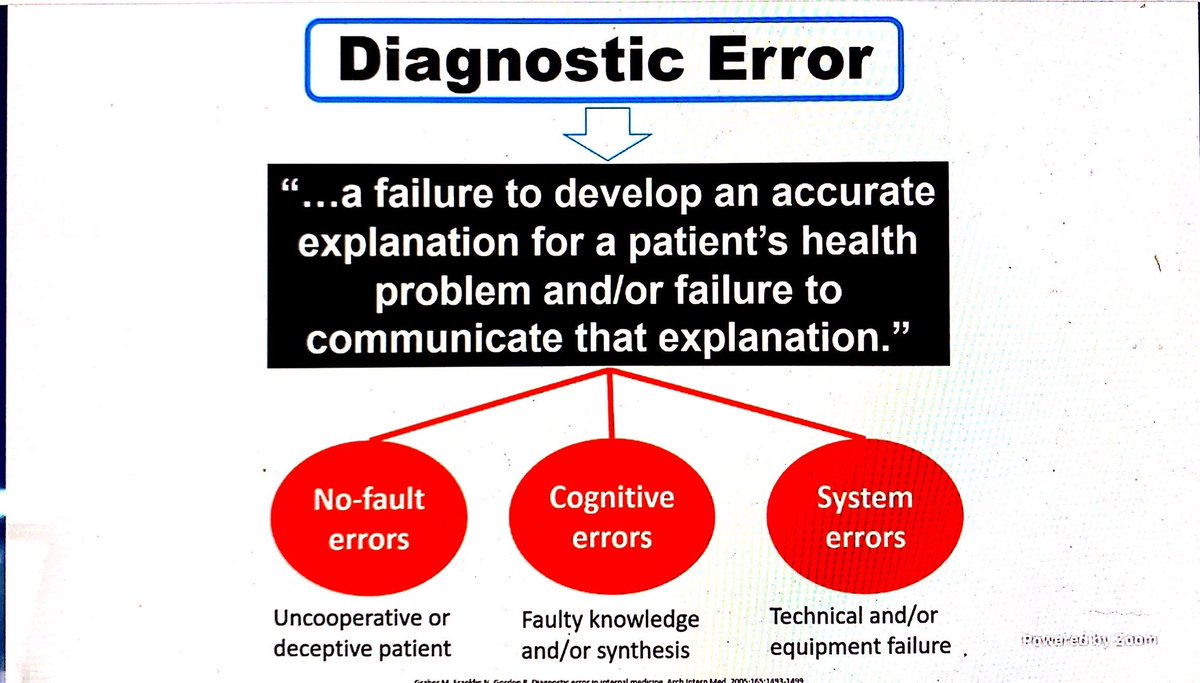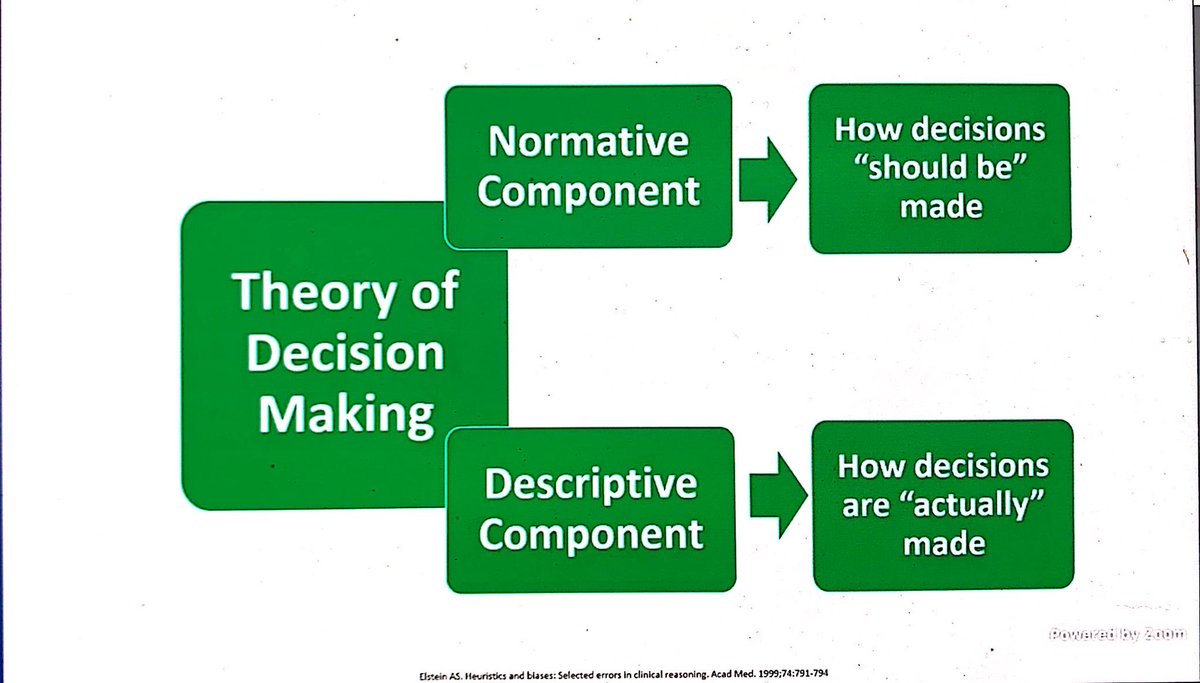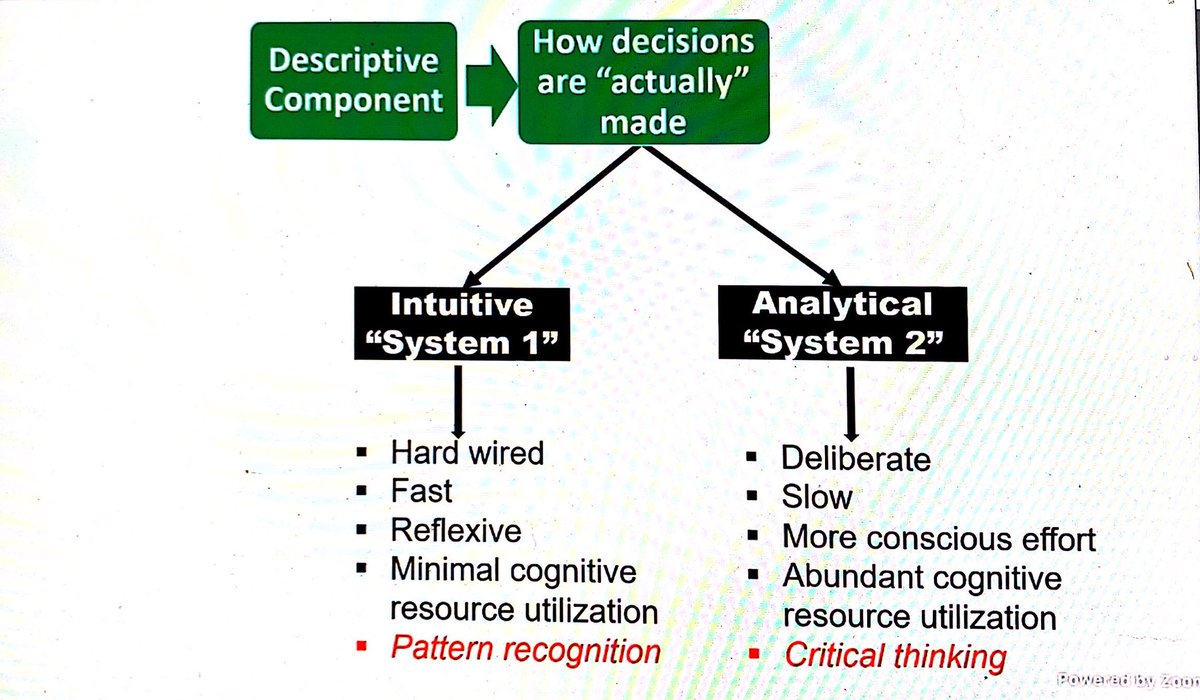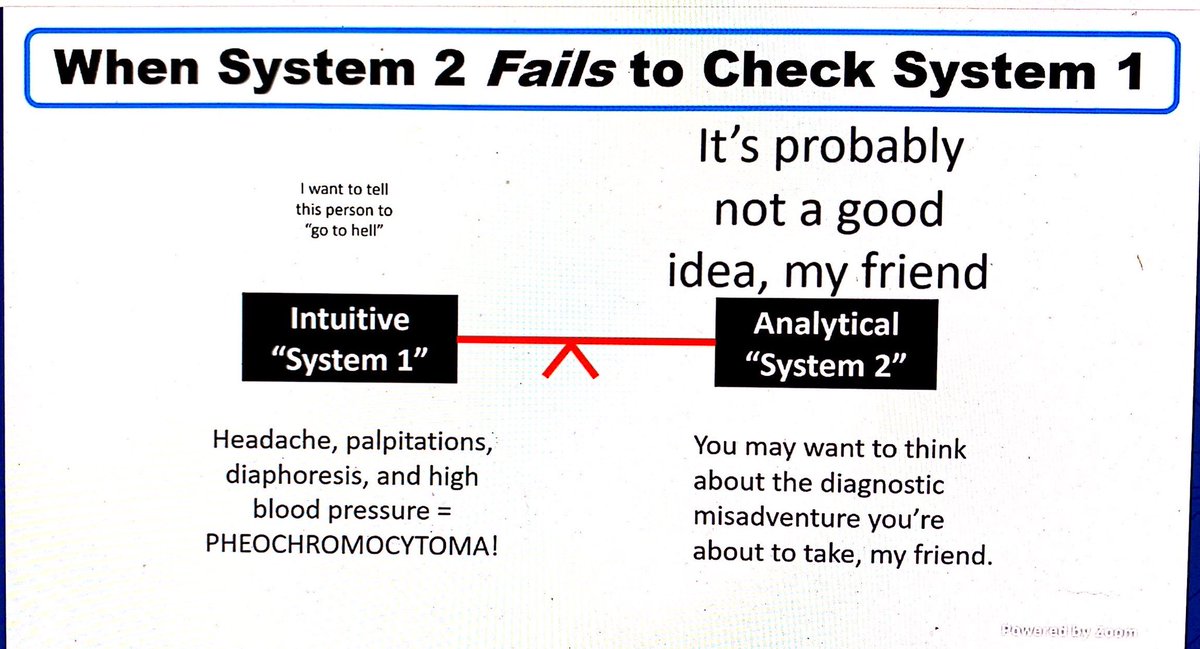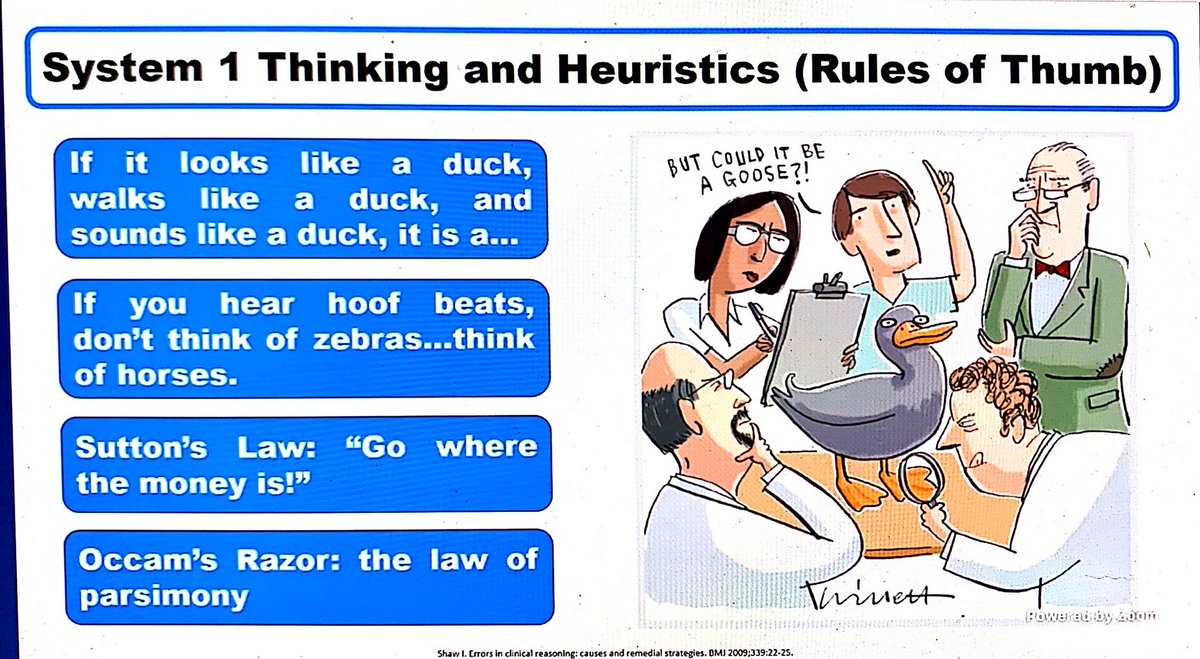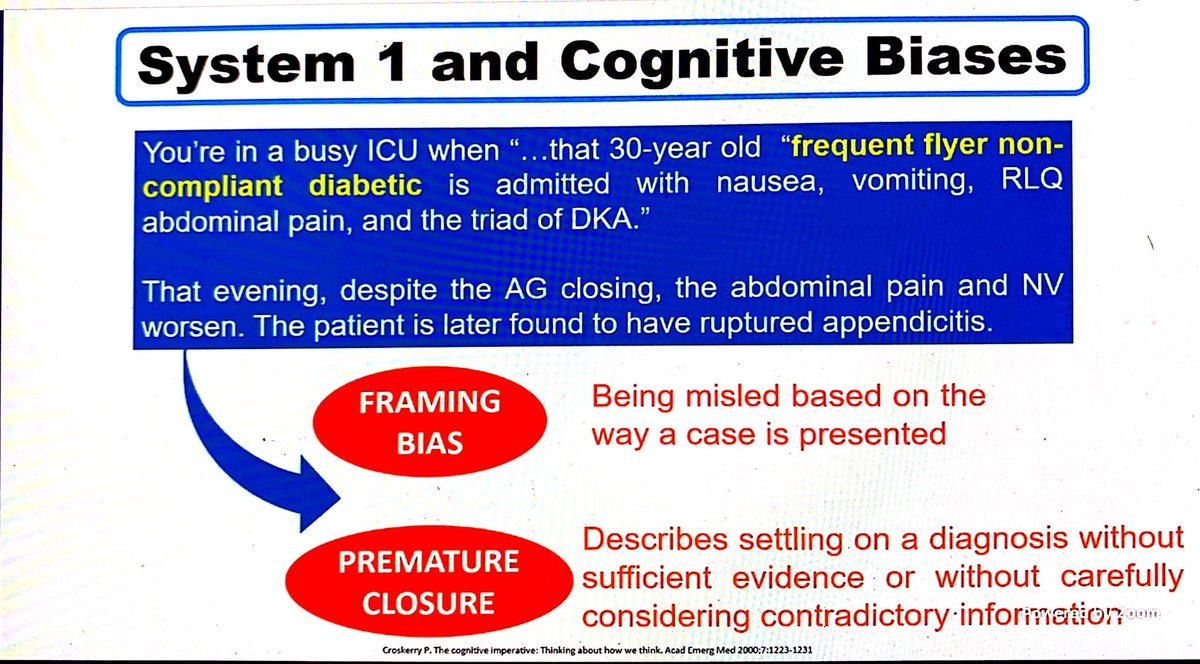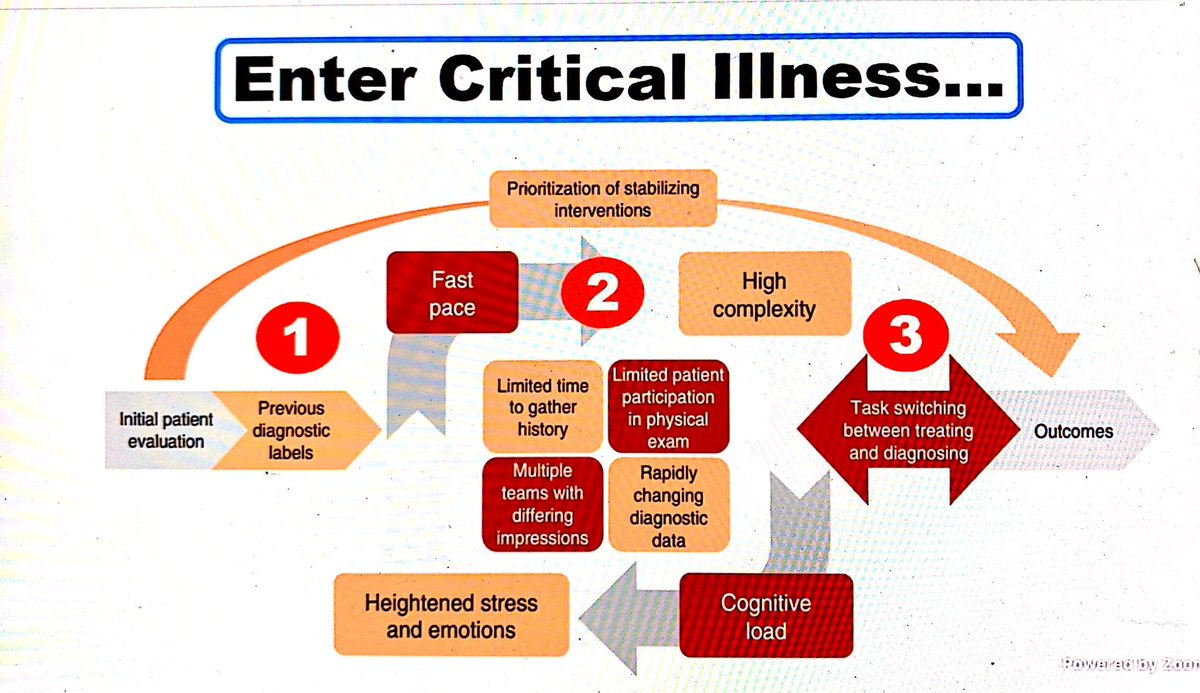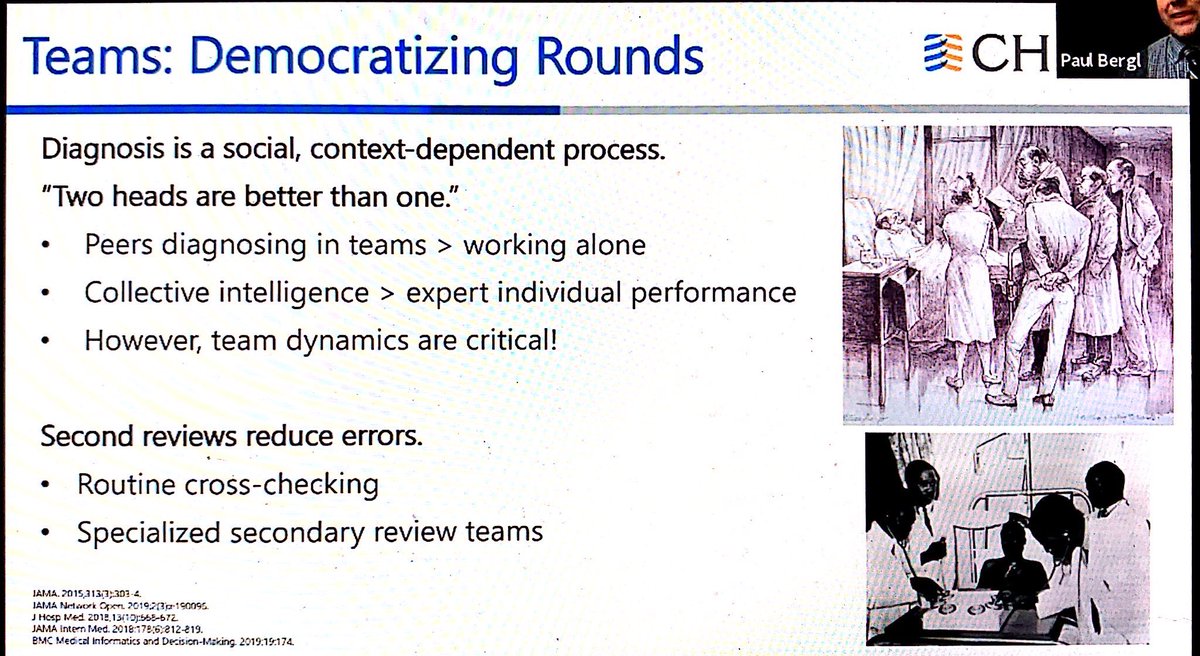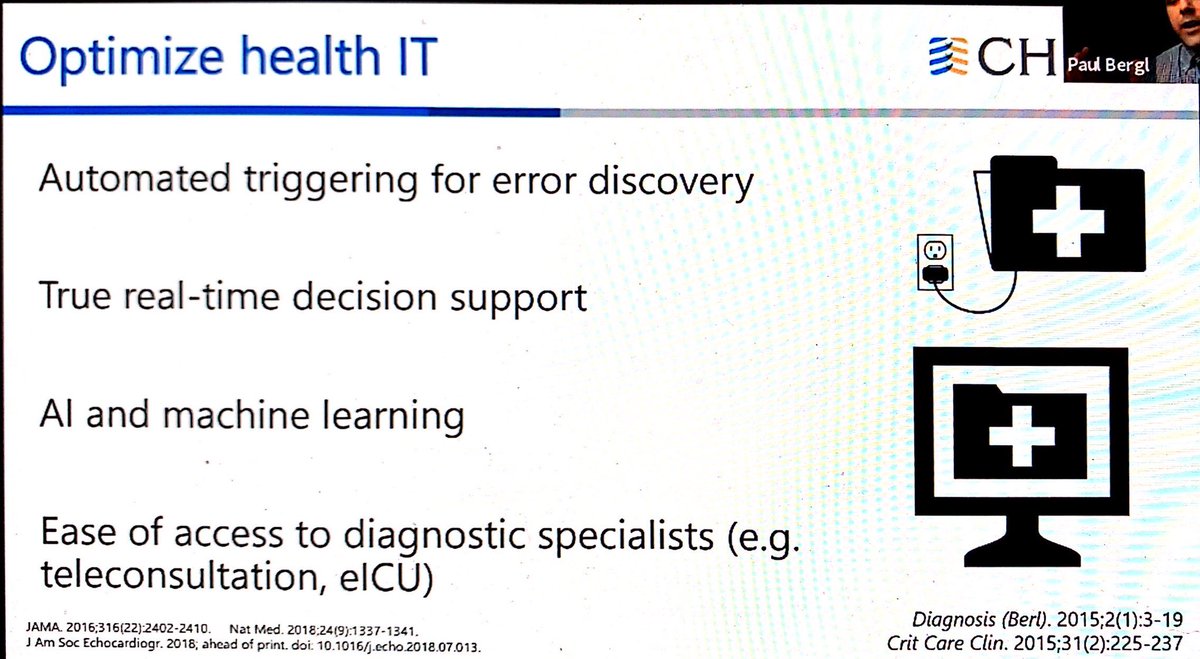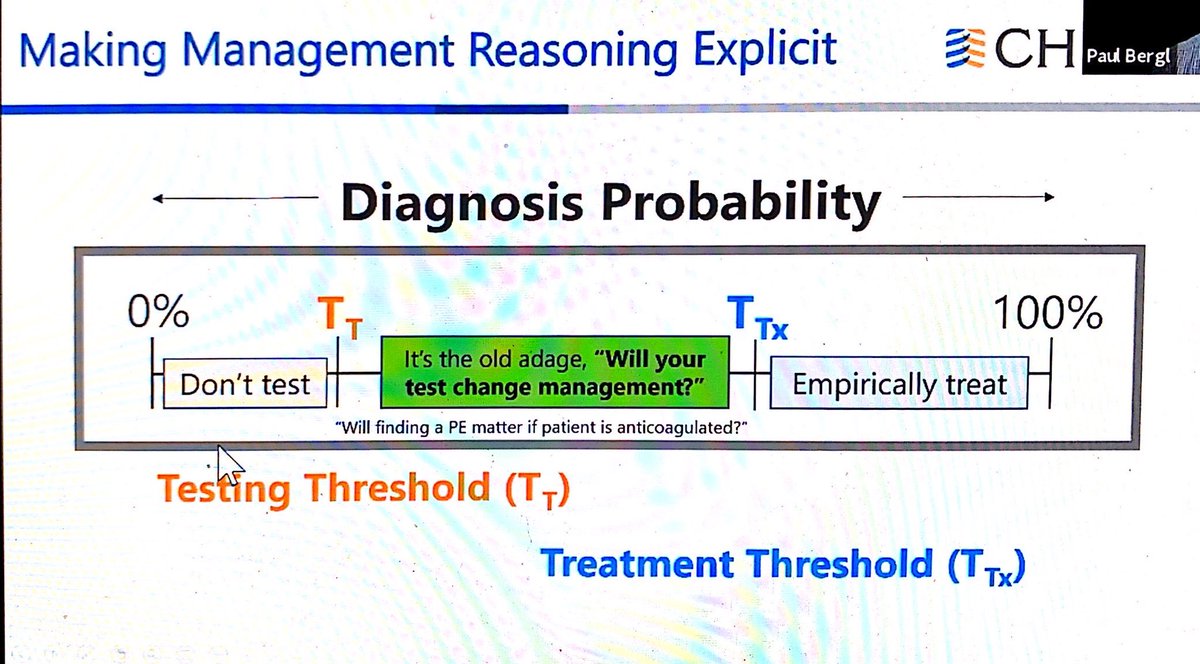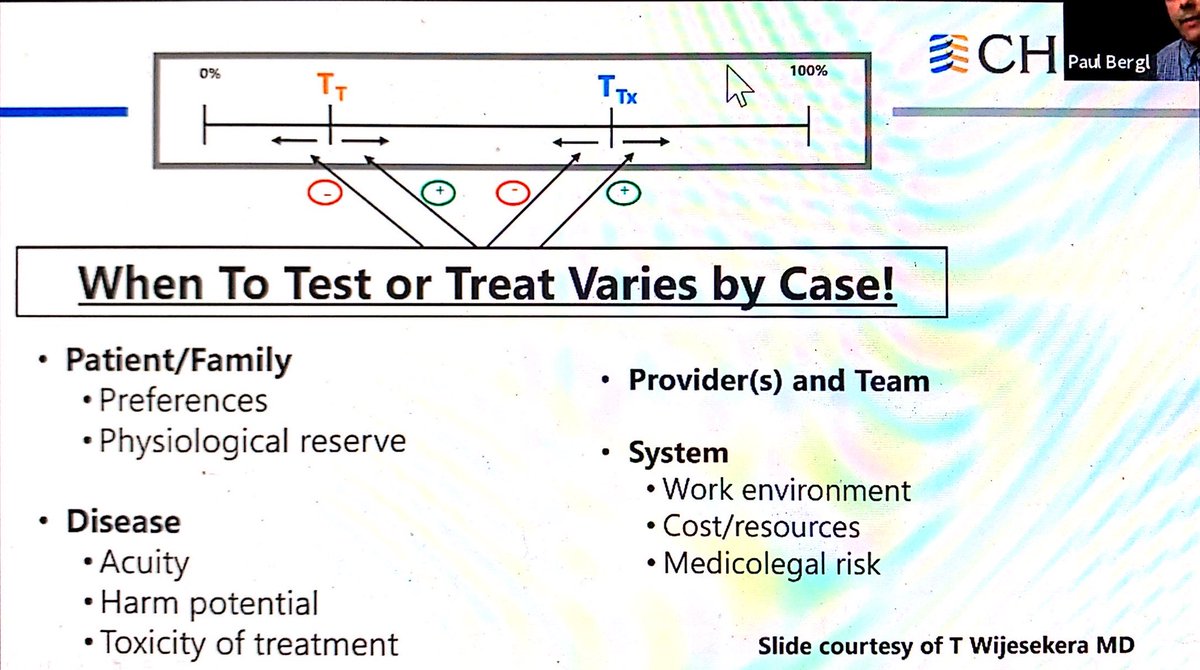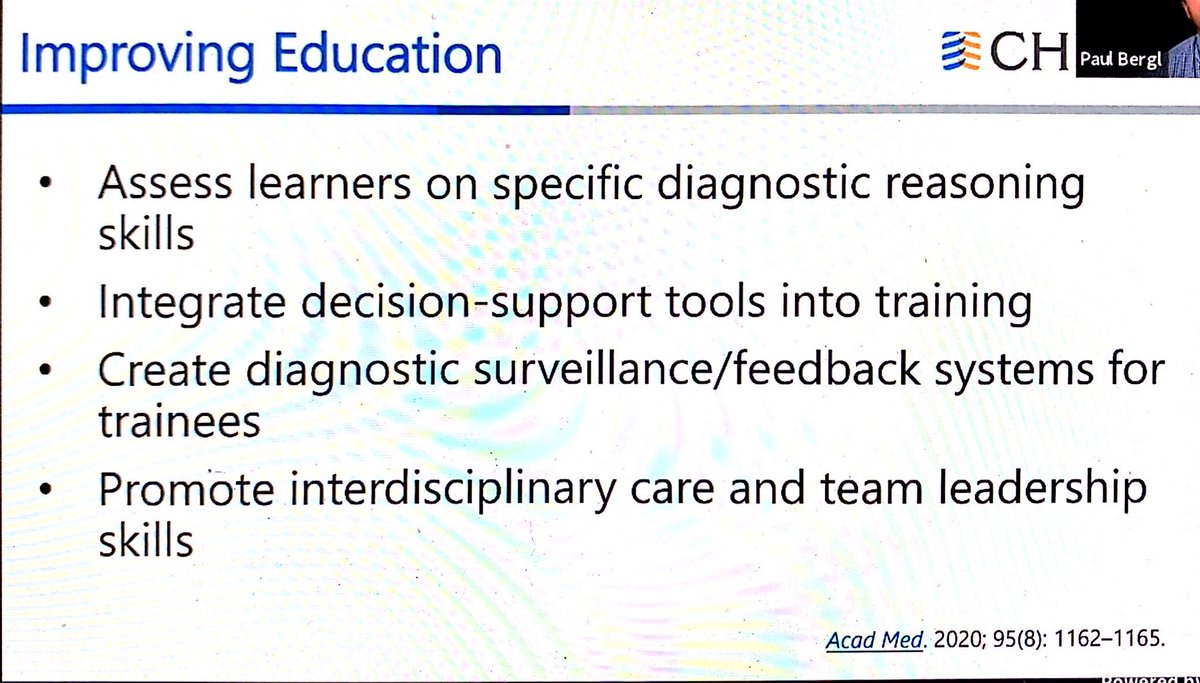Next I& #39;ll be tweeting the session on "Diagnostic Errors: Seeing the Blindspot of Healthcare Delivery!" First up is Dr. Molly Hayes with "What are Diagnostic Errors?"! #CHEST2020
What are diagnostic errors? "Improving the diagnostic process is not only possible, but also represents a moral, professional, and public health imperative." #CHEST2020
Now let& #39;s go back to our case. There were details on the case that you weren& #39;t told on round because they didn& #39;t fit the picture. There was an anchoring bias and framing that led to the wrong diagnosis! #CHEST2020
Next up we have "Why do Diagnostic Errors Occur" with Dr. Jayshil Patel! #CHEST2020
When you look at the theory of decision making there is a normative component of how decisions SHOULD be made, and a descriptive component of how decisions actually are made. #CHEST2020
The complexity of a system will determine whether a task will induce intuition or analysis. #CHEST2020
In a busy ICU we can have diagnostic errors due to multiple cognitive biases and system factors. #CHEST2020
Here& #39;s a summary of his talk. Our system 1 decision making leads to cognitive errors but system 2 is the path to expertise. #CHEST2020
Next up is Dr. Paul Bergl ( @PaulBerglMD) with "Practical Strategies to Minimize Diagnostic Errors in Your ICU and Training Program." #CHEST2020
Situated cognition states that there are three main domains that affect diagnostic errors: patient, physician, and practice factors. Two of these (physician and practice) are under our influence. #CHEST2020
We need to democratize rounds. Two heads are better than one, and second review reduced errors! #CHEST2020
How can we reduce distractions and cognitive load? Use checklists, reduce non-diagnostic decisions, start with the sickest patients that require the most thought. #CHEST2020
One thing we can do to help with decision making is to embrace uncertainty and realize that it& #39;s always going to be there. #CHEST2020
The testing threshold (whether to test or treat empirically) depends on the diagnosis probability. #CHEST2020

 Read on Twitter
Read on Twitter